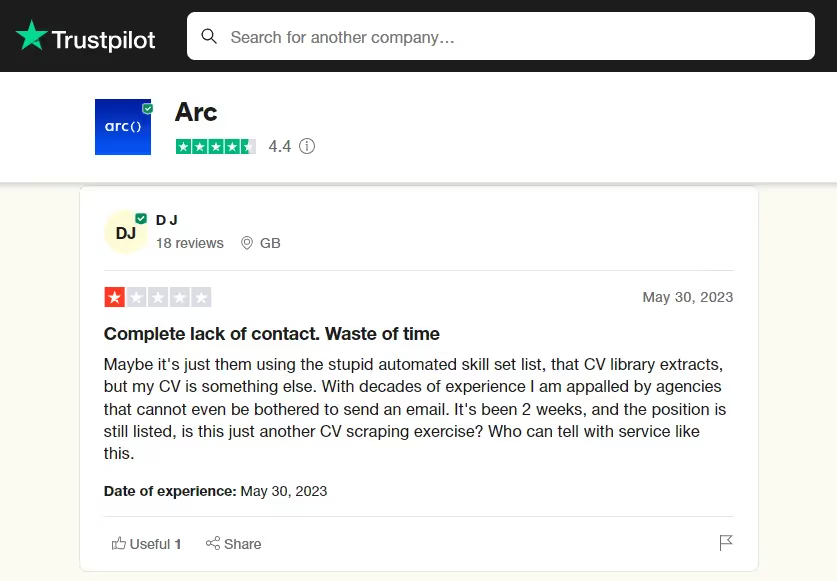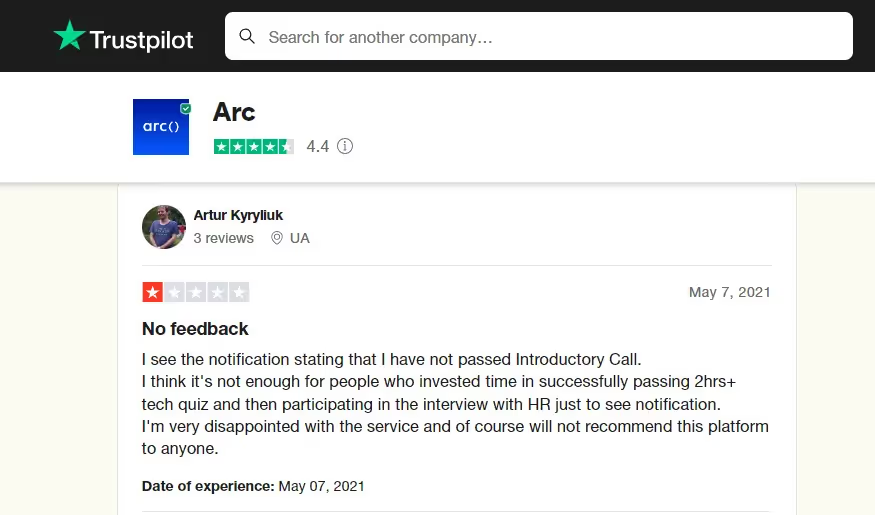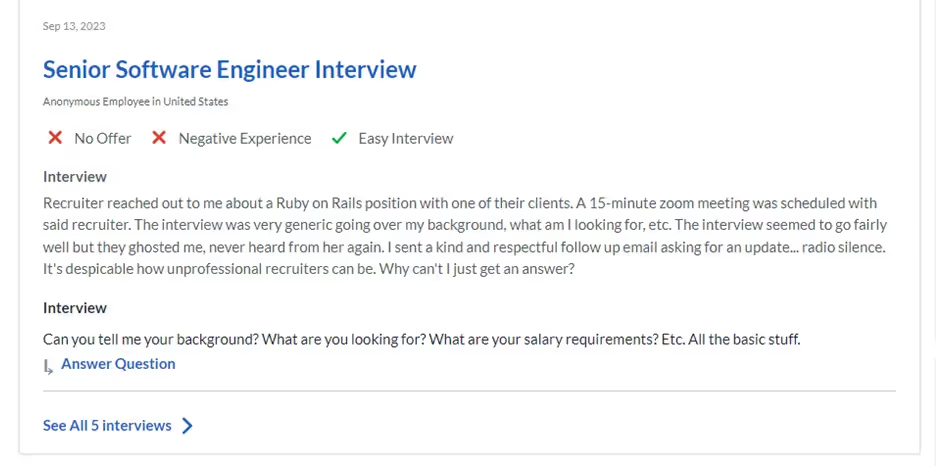Arc.Dev stands out for its robust pricing strategy, flexibility, and access to a global talent pool. However, certain aspects, such as refund policies and minimum commitment requirements, could benefit from additional clarification to provide potential clients with a comprehensive view of the service. This article delves into the intricacies of Arc.Dev's pricing approach and draws a sharp comparison with Teilur Talent's transparent model, which prioritizes clear insight into client spend and developer revenue.
Arc.Dev cost for companies in the U.S.
In exploring Arc.Dev's pricing framework, our direct inquiries revealed that their charges are only finalized post-final interviews. Reported developer hourly rates fall between $60 to $80, not including their undisclosed fees, leaving clients guessing the actual take-home for the developer. Arc.Dev also promotes full-time plans, like HireAI Lite at $399 per job/month, which, while offering access to their extensive talent pool, restricts candidate interviews and benefits.

In contrast, Teilur Talent boasts a transparent 20% fee, ensuring that the candidate receives 80% of the client's payment. For example, a Full Stack Developer Senior is priced at $5,625 - $7,750/month.
In addition, we researched several review platforms, including Clutch, but were unable to find any pertinent information about the company.
Our research into Arc.Dev's performance on customer review platforms revealed a commendable 4.4-star rating from over 100 reviews on Trustpilot, showcasing the high level of satisfaction among its users. This positive feedback underscores Arc.Dev's effectiveness in connecting companies with skilled professionals and its strong reputation in the remote talent acquisition industry.
Despite this, some concerns have been raised regarding the candidate selection process, which deserve attention. Nonetheless, the overall positive reviews highlight Arc.Dev's commitment to quality and client satisfaction, making it a noteworthy option for businesses seeking remote talent solutions.


We also researched on the renowned Glassdor platform, on this platform, Arc.Dev has 2.4 stars and 10 user reviews. Here we found several customer experiences where there is evidence of nonconformity in the candidate selection process, more specifically, in the communication and feedback that recruiters have in the interview process. This can lead to a decrease in the number of applicants to the platform, therefore, the candidate options decrease as well.

Our thoughts on Arc.Dev´s pricing structure
While positive reviews were found, the lack of detailed pricing information raises questions about the transparency of Arc.Dev's fee structure. Teilur Talent's core principle is transparency, as we firmly believe that if a client is being charged $8,000 per month for a developer, the candidate should receive a fair share, in line with our commitment to informed decision-making.
Conclusion
Teilur Talent and Arc.dev have each carved out strong reputations in the remote staffing sector, known for their ability to match companies with skilled professionals. Yet, when it comes to the transparency of pricing, Teilur Talent takes the lead. Its straightforward and clear rate policies offer businesses an added layer of trust and predictability in budget planning.
For organizations that value transparency in every aspect of their partnerships, Teilur Talent emerges as the preferable choice. If transparent pricing is a key factor for you, opting for a provider like Teilur Talent could be the way forward.
Explore Teilur Talent's transparency by using our hiring budget calculator on our website, which offers flexibility tailored to the candidate's accepted offer across different roles.
Also explore EPAM pricing model and gain insight into how much they charge clients compared to other players in the market.







